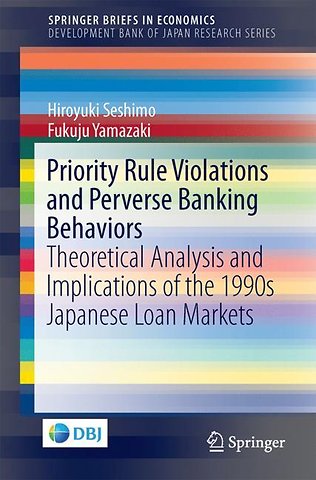Priority Rule Violations and Perverse Banking Behaviors
Theoretical Analysis and Implications of the 1990s Japanese Loan Markets
Samenvatting
This book theoretically and empirically explores why Japanese banks engaged in seemingly contradictory behaviors in the 1990s, namely, the credit crunch and evergreening, i.e., inefficient additional lending. A credit crunch occurs when banks are unwilling to finance good and efficient projects. Evergreening implies that banks reluctantly lend additional money to poorly performing and financially vulnerable firms. The authors hypothesize that these practices stemmed from violation of the absolute priority rule (APR) by creditors, thus making it possible to explain this seemingly contradictory banking behavior in a consistent way. In Japan, the APR has often been violated legally by courts and some governmental acts. Examples from the 1990s involve legal abuse in the form of short-term tenancy protection (tanki chinshaku ken) and political intervention in the liquidation of Housing Loan Companies, or Ju-sen. The Supreme Court of Japan has issued critical decisions leading to serious violations of APR in the early 1990s. Evidence provided here supports theoretical results. Empirical testing for a significant difference in banking behavior before and after the Court decision using data from Japanese firms in the 1980s and 1990s found that theoretical arguments were empirically supportable in the last half of the 1980s and through the 1990s. Finally, based on their analysis, from the theoretical point of view the authors consider the optimal legal scheme to achieve the best assessment of initial and additional lending in light of the legal reform of the 2000s.
